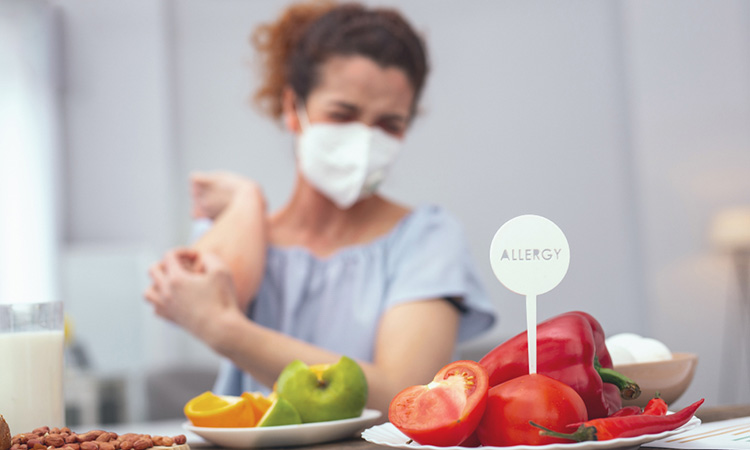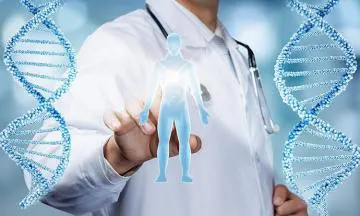

Is a rash a sign of food allergies or eczema
A 3.5-year-old kid visited us for severe rashes on the skin. Her parents had consulted several doctors for the ‘rash’ problem. Few diagnosed it to be an allergic rash due to certain foods while others told them it’s a sign of an eczema disease. Her parents kept her off food items like nuts, soy, eggs, and wheat. Still, there have been episodes of vomiting and allergy rash on her skin. They were clueless whether the rash is due to food allergies or eczema skin disease.
So, what’s the truth? Is a rash a sign of food allergies or eczema disease? Let us find out.
Eczema, also known as atopic dermatitis, is a skin condition that causes inflammation and irritation. It affects about 10% of adults and nearly 11% of children. Among children under 5 who have an eczema skin disease, as many as 30% may also have food allergies. The more severe your eczema skin disease, the higher the risk of developing food allergies.
However, food allergies can only be a trigger for eczema, they are not the cause. Eczema results from an imbalance of the immune system. As a result of this imbalance, a child may become sensitive to common things in the environment (e.g., foods, dust, mites, and pollens). In some, food allergies may make eczema worse.
Removal of the foods will sometimes result in improvement but will not cure eczema. As foods are not the basic cause of eczema, avoiding food may not make any difference. It is therefore very important to control eczema skin disease.
Types of allergic reaction seen in eczema sufferers
There are 2 main ways food allergies may make the eczema symptoms worse:
1. Quick reaction with redness and itching of the skin within an hour or two after eating the food. Children with these reactions will usually have a positive skin prick test or blood test as they have developed IgE allergy antibodies.
2. Delayed reactions when eczema may gradually get worse (more redness and itchiness) over 24 -48 hours after eating the food. These reactions are thought to be due to immune cells in the skin (T cells) reacting against the food. IgE antibodies do not cause these reactions and therefore skin prick tests are not very helpful.
Common food allergies associated with eczema
The food allergies that are most commonly associated with eczema skin disease are egg allergy, milk allergy, soy allergy, gluten allergy, wheat allergy, and nut allergy (especially peanut allergy).
These allergies can all be challenging to diagnose and avoid as they are present as ingredients in many other foods.
Removing allergic foods from your diet – is this the solution?
No, because removing common foods such as wheat, milk, and eggs from your child’s diet may mean that their diet will no longer meet their nutritional needs and a limited diet may be difficult to manage.
There is another important reason why removing food from your child’s diet may not be a good idea. Studies have shown that removing a food from the diet of a child who regularly eats the food can lead to an allergic reaction when that particular food is reintroduced.
Managing food allergies and eczema
The best course of action is to treat the eczema skin disease.
For children, you would need a safe and effective treatment option for managing eczema flare-ups. Homeopathy can help you deal with the condition safely.
Homeopathy assesses each child and treats them individually, based on their unique, characteristic presenting and latent symptoms. For e.g., if a child gets an eczema flare-up after eating eggs, the doctor will give an appropriate remedy to address the allergic reaction and hence reduce the eczema flare-up. Homeopathy treatment also helps restore your child’s hypersensitive immune system to normalcy, and bring about a reduction in the intensity and frequency of the allergic reaction.
A six-year study of patient outcomes at the Bristol Homeopathic Hospital, UK, found that 82 percent of eczema patients under age 16 said they felt either ‘better’ or ‘much better’ with homeopathic treatment.
You can consult our doctors for an individualized treatment depending on the type of eczema and allergic symptoms your child has. For an appointment, you can follow this link: https://www.drbatras.ae/book-an-appointment




